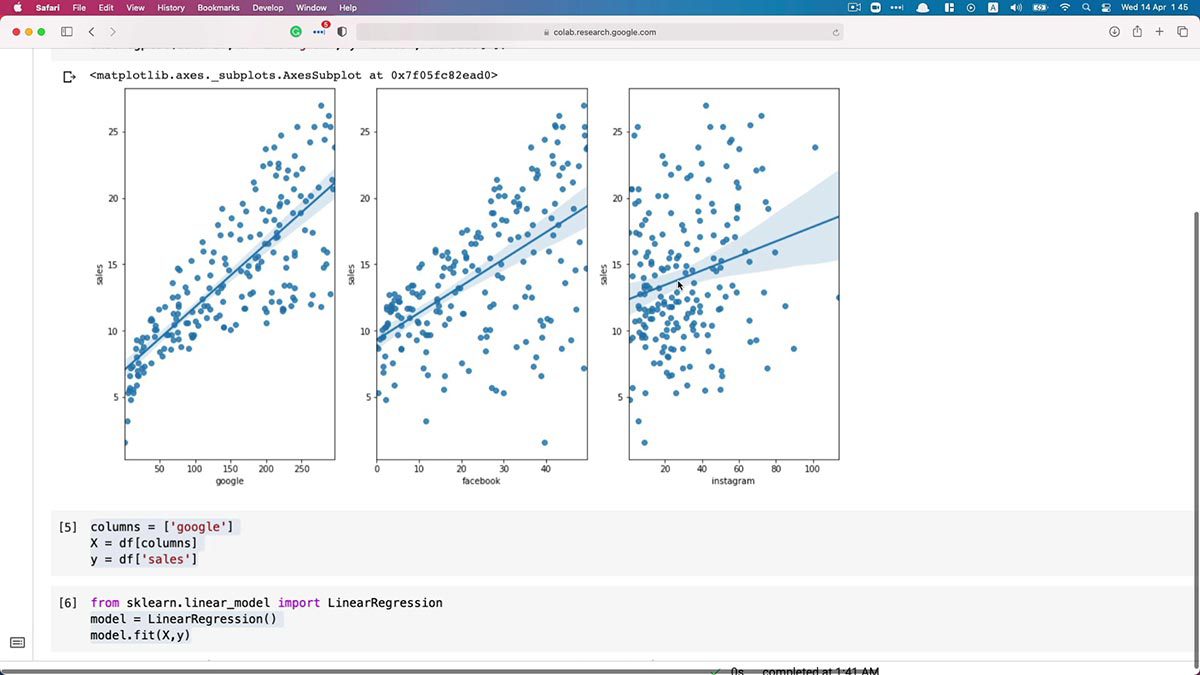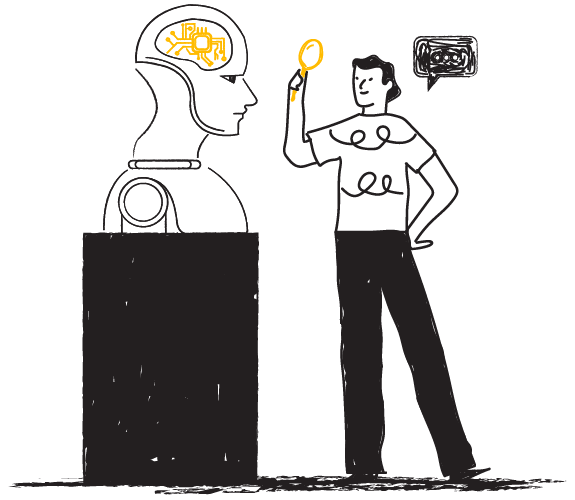You’ve probably been wondering how to become a serious data scientist with an appealing portfolio, like so many experts you’ve come across on LinkedIn or other platforms, who have a fantastic work history and intriguing projects linked to their profile.
You may have doubted yourself several times that you don’t have what it takes to be like them, but we’re here to share with you that all you need is the right information.
If you have struggled over the years to stay on track on your data science journey, this article is for you.
In this article, we’ll reveal how you can become the most sought-after data scientist even if you have little to no experience.
To begin with, let’s talk about data science skills that are most vital in 2022.
Which data science skills are the most vital in 2022?
It is no news that some data science skills are in high demand, relevant and will definitely get you a job faster than others.
In order to become a serious data scientist, you must master those skillsets that will be in demand in the industry years from now.
Before we recommend which of the skillsets you should pick up, let me highlight those data science skills that will be most vital in 2022.
Keep in mind that this list is not in any particular order.

We have divided these data science skills into two:
- Technical skills (hard skills)
- Non-technical skills (transferrable skills)
Let us discuss the technical skills that will be most vital for data scientists in 2022.
Structured Query Language (SQL)
SQL is one of the most important skills a data scientist must learn.
To be a full stack data scientist, you must be able to write robust SQL queries to create, modify, and explore data from different databases.

Understanding how to use SQL will give you an edge as a data scientist. Here is how,
Many companies hire data scientists who can do more than just model data. They prefer full-stack data scientists (aka “Jack of all trades, master of all”) to other data scientists who specialize in only one skill.
Learning SQL will also make you independent as you don’t have to rely much on data analysts or data engineers to get data. This saves time and equally makes you more relevant.
Mathematical models and Statistics

Data science is a practical application of statistics and mathematical models.
So, you may have guessed right, YES! You need mathematics and statistics knowledge to practice data science.
Being familiar with statistical analysis, distribution curves, probability, standard deviation, variance, and other statistical concepts helps in the collection, analysis, interpretation, and presentation of data.
However, you don’t necessarily need a degree in mathematics to become a data scientist. However, you need to have an understanding of these mathematical concepts.
Knowledge of Programming

Programming languages help data scientists organize, analyze, and model structured and unstructured datasets.
Most recruiters will require in-depth knowledge of at least one or two programming languages like Python or R.
You can use both R and Python to solve any problem you encounter in data science. However, if you are a complete beginner, we would recommend you learn Python programming as it is beginner-friendly.
Data visualization

Another interesting and aesthetic data science skill that will be relevant in 2022 is data visualization.
Data visualization is the act of generating visuals using data in a bid to understand the pattern in the data or generate insight from the data.
Because data science projects involve large sets of big data with different data types, you will need to create different data visualizations using line charts, bar charts, histograms, heat maps, scatterplots, and more to be able to make sense of that data.
Data visualization also allows you to tell a story with your data (we will talk about data storytelling later in this post).
Model deployment and production
The majority of data scientists’ time is devoted on model development and deployment.
One of the most important skills you will need as a data scientist is the skill to select the appropriate algorithm and then utilize supervised or unsupervised learning approaches to model your data. You may also need to tweak the model until it provides the desired results.
Once the model has delivered the appropriate results, it must be deployed in a production environment (with the assistance of a data engineer) to support organizations in making realistic business decisions on an ongoing basis.
Machine learning and Deep learning

Many data scientists lack expertise in machine learning and deep learning techniques.
Neural networks, reinforcement learning, adversarial learning, and other techniques are examples of this.
If you want to position yourself as a serious data scientist come 2022, you should be familiar with machine learning techniques such as supervised machine learning, decision trees, logistic regression, and so on. The basic practice that’s used in the industry.
These skills will assist you in resolving various data science problems. Data science necessitates the application of machine learning and deep learning techniques in various fields.
Working with a large number of datasets is also a requirement as a data scientist. Hence, you should learn how to apply machine learning and deep learning techniques.
Version control
As a data scientist, even when you’re working with a single file (say a Jupyter Notebook), you can keep track of your changes using a version control system (usually it’ll be Git).
The reason why version control is important is because it allows you to save your work progressively and makes it easy for you to manage and collaborates with others on complex projects.
Although, version control may not be the first skill to learn as a beginner but if you want to stand out as a data scientist in coming years, you need to show some level of professionalism in how you handle your workflow (version control will definitely help with that)
Let us talk about the non-technical skills as well,
Domain Knowledge

Data science can be used in a variety of fields, including health care, agriculture, finance, and business.
Your understanding of the domain knowledge of that particular industry is what determines your approach towards solving the problem.
For example, understanding business concerns can enable data scientists to ask better data questions. develop innovative ways for a company to use its data and identify the most critical analytics problems.
Storytelling

Next on the list of most vital data science skills in 2022 is Storytelling. This is one of the most underrated skills in data science as people focus only on the technical skills.
As a data scientist, you need to be able to tell stories with your data (interesting ones!).
Clearly, data scientist understands how solve complex problems with data, however, for you to be considered valuable, you must to be able present your findings to non-technical member of the team who don’t have as much knowledge about data science as you do.
Problem solving

Often times, as a data scientist, you will be charged with the huge task of finding meaningful patterns and information in very large datasets.
This is where your problem-solving skills will come in handy. You will need to ask questions, develop problem statements, and come up with hypotheses related to the business opportunity.
You must also have a firm mind to solve those problems by figuring out how to connect the dots.
What qualifications do you need to be a data scientist?
Employers look for a variety of things on a candidate’s resume when hiring data scientists, from data science skills to experience as well as qualification.
As with any employment, there are a variety of educational and professional qualifications that will help you stand out as a data scientist.

We figured it would be important to talk about the qualifications you need to become a serious data scientist. They Include:
Education
Education is actually at the top of my list; I’ve seen a lot of articles state that you don’t need a degree to become a data scientist (as much as this may sound comforting to most beginners), it is not entirely true.
You’ll need a fundamental educational background to develop your reasoning, analytical, and critical thinking skills. But you don’t need like a Masters or PhD to be qualified to practice in the industry.
In fact, industry data scientists are highly practical, with many having projects and portfolios. Although there are notable exceptions, a degree in computer science, social sciences, physical sciences, engineering, or statistics or any other related field could at least get your foot in the door as an entry-level data scientist.
However, a degree in the above field does not automatically qualify you to become a data scientist. You must also learn specific industry skills.
Professional qualification
You can also earn a professional certificate in data science by enrolling for professional programs in data science like Data Science 360, offered by accredited institutes.
Many of these institutes have developed strategies that will get you started from a beginner with no experience to an expert at data science.
They also have proven track records to show for it. You can as well enroll for online courses (MOOCs), this will allow you to learn at your own pace.
Skillset to pick up (for data scientist)
After explaining the most important data science skills in 2022, let me quickly highlight some of the skills you should pick up as soon as possible.
- You should learn a programming language such as Python, R or both.
- You gain domain expertise with your current work experience in an industry.
- Learn how to model data that answers questions.
- Learn how to explore and visualize data to detect patterns and trends.
- Understand basic mathematical and statistical concepts.
- Other transferable abilities, including critical thinking, problem-solving, communication, and data storytelling, should be developed.
I’m in my mid-stage career, can I be a data scientist?
We’re frequently asked, “How can I be a data scientist while I am already in my mid-career stage?”
In this section, we’ll respond to this question and explore your pathway.
If you want to become a data scientist in your mid-career, don’t start by studying the technical skills required for data science.
We understand that you may feel forced to learn programming languages like Python and R because that is what many people do, but what we’re about to discuss will save you a lot of time and accelerate your transition to a data science career.

To begin, if you come from a technical background such as software development or are a programmer, you may find it easy to learn Python or R programming.
If you come from a non-technical background, you should take a domain-knowledge-focused approach rather than a technology-focused approach.
I’ll explain what I mean.
Data science is applied in a variety of fields. As a result, you may readily apply your prior domain knowledge during your transition.
This implies that you will concentrate on a data science job inside your domain.
For example, as a mid-level HR professional wishing to transition, you may become a data scientist specialized in human resources. HR data scientist, HR analytics specialist, and HR data analyst are some of the positions available.
Finally, you can concentrate on technical aspects of data science related to human resources, such as using data to analyze people problems (i.e., people analytics, talent analytics etc.).
That way, even if you’re in the middle of your career, you can quickly transition to data science.
Daily tasks of a data scientist
Here is a breakdown of the daily activities of data scientist (This may vary depending on industry and type of project).
Formulating questions and hypotheses to identify business problems.
As a data scientist, you will ask questions to identify what the company’s problem is and how much they need to solve it. You will then need to extract data that can be used to solve the problem. For example, a typical sales problem statement may include:
- Who are the target markets? (Identifying their demographics)
- What is the current sales status of the organisation?
- What are customers saying about the product?
After that, you move to getting relevant data to help solve the business problem.

Skills required: critical thinking, domain knowledge, curiosity, communication
Extracting relevant data to solve business problems.
Here, you will need to check if the data you require is available within the company.
In most cases, you might get previous datasets from a market research study earlier carried out by the organization, or you can extract useful data from the company’s customer database.
The data you will collect is “messy” (in raw format).
You will see a lot of inconsistencies and anomalies in the data. You will need to clean the data before proceeding to building a model.

Skills required: Knowledge of databases, SQL, data cleaning.
Cleaning and Preparing Raw datasets
Data scientists spend up to 80% of their time on this process.
Most often, raw data usually comes in dirty forms and you need to make sure this data is clean and error-free.
You will need to employ various data mining techniques and tools such as Python, R and SQL.
You will spend a lot of time treating missing values, identifying invalid entries and selecting or merging multiple columns in the datasets. Once you arrive at a clean data, it is ready for analysis!

Skills required: R, Python, SQL, Data mining techniques
Modelling data
After cleaning the data, you have appropriate information to create a model to answer questions such as “How can we Identify customers who are more likely to purchase our product?”
This will require you to apply various algorithms on your data. You will need to also validate your model on test data, visualize your data and also predict based on the model.

Skills required: machine learning, data modelling, algorithm
Presenting and communicating results (a.k.a. data storytelling)
Communication skills are also one of the most important yet challenging tasks for most data scientists as it requires you to present your findings to your audience, managers and other stakeholders in the organization in a way that is easily understood by them.
As a result, you need to explain your findings to them without necessarily boring them with the technicalities involved in the project.

Skills required: R, Python, Tableau, Power BI, Storytelling
In summary how to become a serious data scientist
Many technical and non-technical skills are required in data science.
As a result, it is not advisable to jump into this field without proper planning.
To become a serious data scientist, you will need solid information on how to transition into this field, what skills to learn, qualifications you will need, and the daily activities you will face. This article taught you all of these things.
Finally, if you are a complete beginner or are in the middle of your career, here is some advice for you: Do not become overwhelmed or feel obligated to learn every skill you see on the internet.
Instead, concentrate on the skills that are required for the job you want. Also, strive to learn the most important skills for 2022, as mentioned in this article, and we’re confident you will have a remarkable growth curve as a data scientist. Above all, keep going and learning!
Let us know in the comment section, what data science skills are you currently working on?



0 Comments